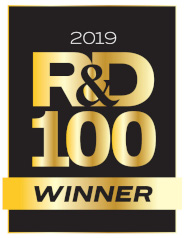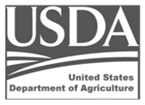The relevance of understanding organic matter in agriculture includes its impact on soil texture, soil bulk density, water holding capacity, soil pH, cation exchange, and microbial biomass. Current methods of organic matter analysis include Loss on Ignition and Walkley Black.
Persistence Data Mining is introducing the Soilytics solution, a hyperspectral soil nutrient testing technology. Hyperspectral technology allows for quick and easy soil organic matter testing at a cost-effective rate. This will dramatically improve the efficiency of soil labs, all while reducing cost and response times. Not only will this be a huge breakthrough for the soil testing industry, it will serve the precision agricultural market by improving fertilizer application and efficiency.
Organic matter hyperspectral results are well within the standard margin of error of Lost on Ignition organic matter analysis between labs and is a cost-effective method to test and make prescriptions for agriculture. Through the use of advanced algorithms, Soilytics is able to convert hyperspectral reflectance soil data into usable information to serve the agricultural industry.
The Malvern Panalyticals ASD LabSpec is used to collect relevant data. Hyperspectral sensors allow us to visually see outside the range of human vision. A focus on the SWIR and NIR spectrum have enabled a new advanced methodology of scanning nutrients and organic matter in soil. The data had to be reduced for factors that could impact results based on texture, water content, and geology. The baselined data could then be processed into accurate information. Correlating these results to current lab methods resulted in the determination that the use of the full spectrum resulted in better results since limiting factors on confidence required additional spectral bands to properly baseline
Lost on Ignition conventional organic matter analysis cost constraints prevent more granular testing which impacts yields and costs. By remote sensing soil samples, we can take many more samples more quickly and efficiently. The samples can then be uploaded directly to the labs which eliminates the cost and delays of shipping. Our technology will help farmers increase crop yields, optimize input costs, and improve environmental protection.
Kim Fleming is the Lead Agronomist at Persistence Data Mining. He has more than 20 year’s experience in precision farming and agronomy and has led precision ag research efforts at multiple universities. Many of the concepts and technologies he has developed have become part of commercial technology platforms. Kim has worked in industry for the last 10 years, successfully creating effective precision ag programs for agri-businesses in the U.S., Canada, and Brazil. Dr. Fleming completed his B.S. and M.S. in Agronomy at the University of Nebraska. He received a Ph.D. in Soil and Crop Science from Colorado State University.


















